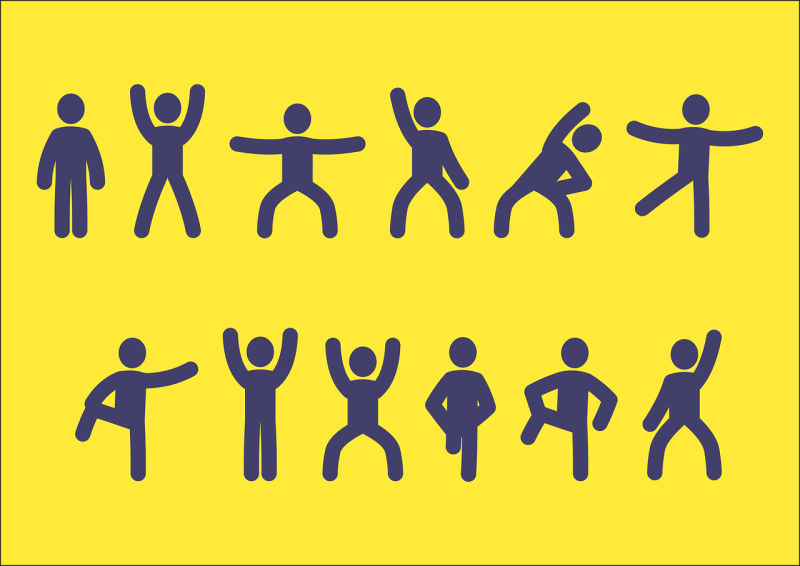Sports hypnosis is a type of hypnotherapy that helps athletes improve their mental state and performance. It can help athletes focus, boost their confidence, and reduce performance anxiety.

Many of us have heard the term “being in the zone.” In sports, this is a natural state of trance in which everything on the field or court seems to slow down and the game comes easily to the player. How do athletes get there?
What is the success rate of sport hypnosis?
Barrios, Ph. D., presented a review in the journal “Psychotherapy: Theory, Research and Practice” and in American Health magazine, where he provided the following recovery rates for different therapies: Hypnotherapy: 93% success rate after an average of 6 sessions.
“Mental focus, concentration and visualization are critical to success in any endeavor, including sports,” says health and sport performance psychologist, Matthew Sacco, PhD. “Adding a mental training regimen to physical and sport-specific training can greatly increase confidence, consistency and ability.”
One such therapy finding success in sports is clinical hypnotherapy. “This kind of approach can sharpen the athlete so they can achieve being in the zone in mind, body and spirit,” says Dr. Sacco.
Below, he helps us understand this process and how it can help athletes to improve their overall performance.
Sports and mental preparedness
According to Dr. Sacco, harnessing brainpower is just as important for athletic performance as physical prowess. “Mental performance in sports has always received a lot of focus and attention,” he says. “Many professional athletes talk about how they rehearse routines as part of their preparation, which can improve performance significantly.”
But research has given us a better understanding of how much psychological well-being can affect overall athletic performance, he adds. “Better treatment and management of mental health issues has a bigger impact than we thought, leading to better performance,” he says. And added psychological stress can also affect your body’s ability to rest and repair itself post-performance.
That’s where hypnotherapy comes in. It adds an element to training that leads to better concentration and a reduction in stress that can allow for a more specific focus on performance. “Dealing more effectively with ‘other stuff’ can ultimately help boost performance,” says Dr. Sacco.
What is hypnotherapy?
A broad definition of hypnotherapy is an altered state of consciousness characterized by certain physiological attributes such as relaxation, slowed breathing and enhanced receptivity to suggestion. It can also allow for increased access to unconscious thoughts, memories and emotions.
Hypnotherapy can also help create a heightened level of awareness of what a person is feeling in the moment, which can lead to high levels of focus on what is important for performance and what is excess, static or noise.
“Leveraging hypnosis with other therapy models like mindfulness and cognitive therapies, hypnotherapy is considered an interactive therapeutic process,” says Sacco.
That’s because while the patient is in a relaxed state, they maintain awareness during the session as well as memories of the session afterward. “It’s not like what’s been popularized in media and pop culture,” he adds. “You won’t be ‘hypnotized’ to bark like a dog or cluck like a chicken. It’s a valuable and well-respected tool that, for some patients, can be very helpful.”
A holistic approach
The use of hypnotherapy coupled with a training regimen typically focuses on performance enhancement through concentration and stress reduction. While performance is the primary concern for athletes, the process of hypnotherapy is expanded to focus on growth, healing and transformation. It can be a way to focus the mind and spirit as well as the body.
At any given time, a variety of issues are influencing the mental health and function of an athlete. This includes identity issues, personal competence and career planning.
Athletes must also consider issues related to their level of participation and achievement. For athletes whose sole focus is on their sport, identity and social connections may be entirely dependent on their athletic involvement and success.
How athletes can benefit from hypnotherapy
Most athletes who are open to the idea of reducing stress and honing concentration can benefit from hypnotherapy. When used as a regular part of psychological training, it can become exponentially more helpful.
That can be especially true when athletes are going through a stressful time or recovering from an injury. It may be the first time an athlete is dealing with physical limitations and wondering how they will perform in the future. It can be useful for all levels of athletes – from the professional to the school athlete to the “weekend warrior” – dealing with recovery issues.
Today, most professional sports teams employ a sports psychologist to help give athletes the mental concentration they need to succeed. In studying the best athletes and sports stars, it becomes apparent that the common edge they all have in achieving the state of “being in the zone” does, indeed, begin mentally.
This is often a multifaceted approach that deals with both managing mental health concerns and enhancing mental skills training, ultimately leading to improvements in sports performance.
How does it work?
- Hypnosis can help athletes restructure their cognitive processes, such as attention, memory, and self-confidence.
- Hypnotists can suggest positive affirmations to help athletes rebuild their self-confidence.
- Athletes can learn to control their stress and stay focused.
- Athletes can tap into their subconscious mind to improve their physical and mental attributes.
Benefits of sports hypnosis
- Athletes can achieve weight loss goals.
- Athletes can gain motivation for success.
- Athletes can learn to deal with how they respond to committing errors.
- Athletes can learn to set goals and maintain a positive attitude.
How to use sports hypnosis
- Athletes can work with a skilled medical hypnotherapist.
- Athletes can capture the mental aspects of their performance when they’re performing well.
- Athletes can use a notepad to jot down everything they sensed after a successful performance.
Leave a Reply
You must be logged in to post a comment.